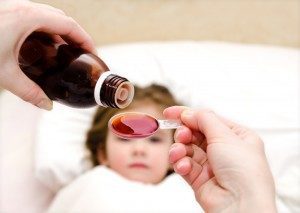This blog post has been edited. It was originally posted on Oct. 22, 2014. Facts may have developed or changed since the original post date. Settlements/verdicts may have been reached or are in progress.
Due to lawsuits that have been instituted after parents give children the wrong dosage of medication, many medical professionals are urging the adoption of a uniform dosing unit for liquid medications. In fact, a recent report has found that the milliliter provides parents with a more exact measurement than teaspoons or tablespoons.
 Growing Problem
Growing Problem
According to the American Association of Poison Control Centers, about three-quarters of the calls made to their centers were from parents attempting to administer medication to their children. Many parents reported being confused by the many options for medication measurement that ranged from milliliters to milligrams or teaspoons to tablespoons. For this reason, the Centers for Disease Control and Prevention say that adopting a uniform measurement could reduce the chance that parents will over-medicate a child and possibly eliminate a lawsuit.
Americans and the Metric System
Many healthcare professionals assume that Americans are more confused by the metric system, and that using common measurements found in the United States, such as teaspoons and tablespoons, is more easily understood. However, a recent study in Pediatrics found that parents whose dosage was shown in milliliters were less likely to make mistakes than those whose dosages were shown in teaspoon or tablespoons. The study found that parents were more likely to use common kitchen utensils that did not provide exact measurement, such as soup spoons. Parents whose dosages were listed in milliliters were more likely to use dosing cups or syringes to administer the medication, providing more accurate medication dosage, reducing the chance for a lawsuit.
Twice as Likely to Make Mistake
The study, conducted at the New York University School of Medicine interviewed 287 parents after they had been prescribed medication in the Bellevue Hospital Center emergency department. More than 40 percent of those parents interviewed had not measured correctly, and one out of six parents admitted to using common household utensils to administer medication. The study determined that parents whose medication was prescribed in teaspoons and tablespoons were almost twice as likely to make a mistake as those using the metric system. Doctors fear that when parents administer incorrect amounts of medication, there is the potential for a lawsuit against the doctor that will claim the measurement was not clear. For this reason, many healthcare professionals are hoping to change the law so that metric measurements are the sole method used for dosage instructions.
When a medical error is suspected as the cause or contributing factor in an incident that causes injury or death, a lawsuit may be in order. Contact Dallas-Fort Worth lawyers at Frenkel & Frenkel to schedule a free initial consultation regarding an incident where injuries may have been caused or worsened by a medical error.

